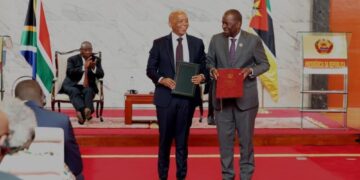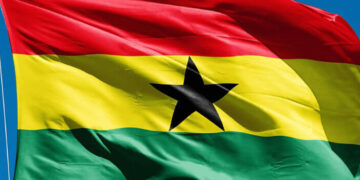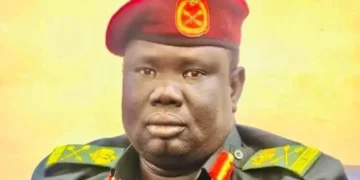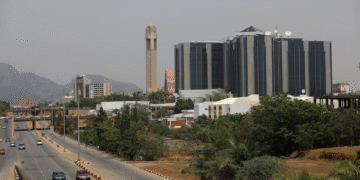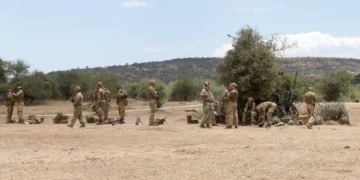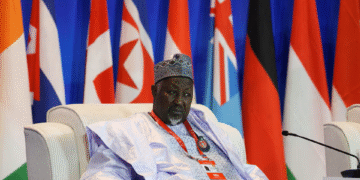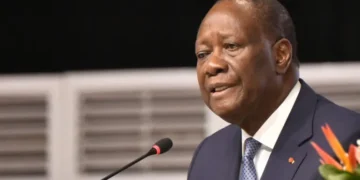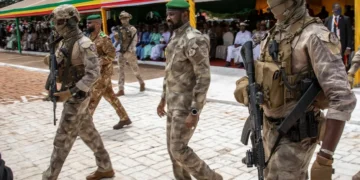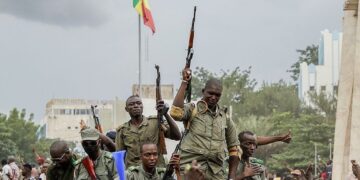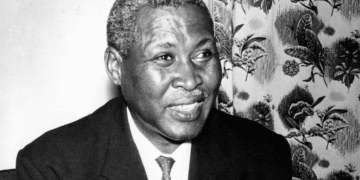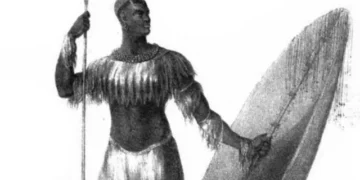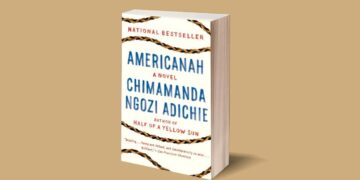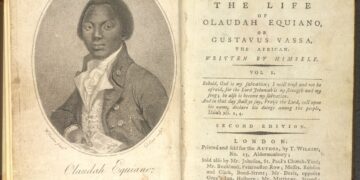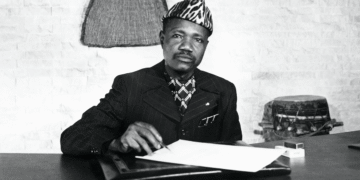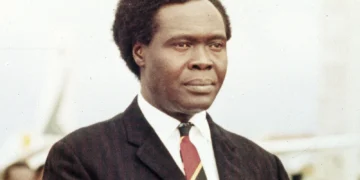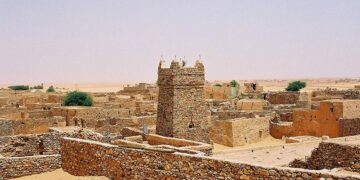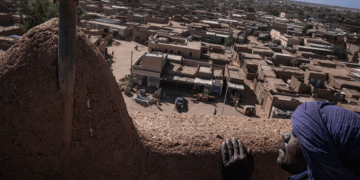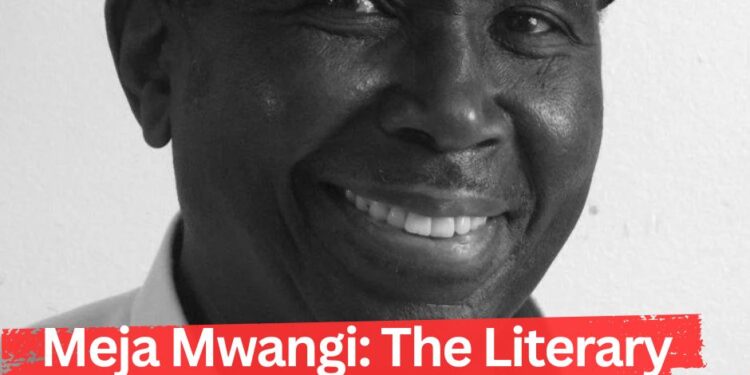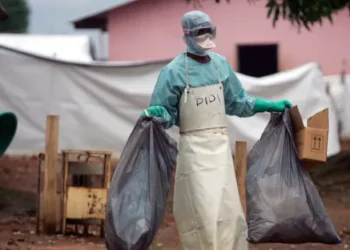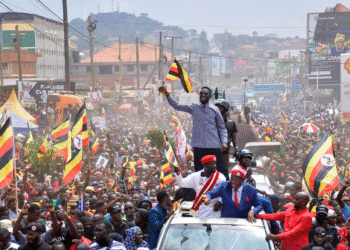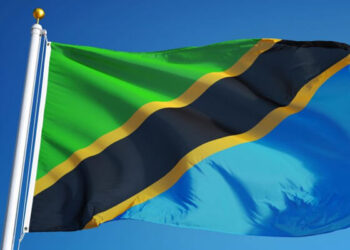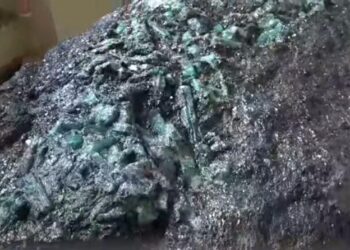Meja Mwangi is a Kenyan writer born in 1948. He is renowned for his prolific contributions to African literature, particularly in the realm of social commentary and realism and the history of Kenya. He often focuses on the harsh realities of urban life, poverty, and the challenges faced by post-colonial youth.
Meja Mwangi was educated at Nanyuki Secondary School, Kenyatta College, and briefly at the University of Leeds. Mwangi then worked for the French Broadcasting Corporation, doing odd jobs, and the British Council in Nairobi as Visual Aids Officer before turning to writing full-time.
Mwangi began his writing career in the 1970s, a decade after his more well-known compatriots such as Ngugi wa Thiong’o and Grace Ogot had been publishing their works. When he burst onto the scene with the award-winning Kill Me Quick in 1973, Mwangi was hailed in various quarters as a rising star in the East African literary constellation who was helping to disprove Taban lo Liyong’s oft-cited claim that East Africa was a literary desert (Taban 1965, Nazareth 1976).
According to A.O Al-Harbi, “Kill Me Quick and Going Down River Road are set in the city. They are primarily concerned with man’s struggle for socioeconomic survival. The world of both novels is that of disadvantaged and oppressed man, his bestial level of living, and his futile efforts to make a standard living. The novels present through vivid visual images and settings the absurdity of the human condition in modern Kenya.”
Since then, Meja Mwangi has gone on to establish himself as one of the most prolific of Kenyan writers, publishing eleven novels in seventeen years in addition to short stories and children’s books and working with a variety of projects in film. Mwangi’s works have received awards in Kenya and abroad; they have been translated into six languages, and there are film versions of two of his novels.
Some of Meja’s most notable works also include “Going Down River Road” (1976), a novel which depicts the lives of young people facing poverty and crime in the slums of Nairobi; “The Cockroach Dance” (1979), another novel which explores urban crime and the effects of poverty; and “The Last Plague” (2000), a novel which won the Jomo Kenyatta Prize for Literature for the third time and offers a rare African perspective on the impact of HIV/AIDS in rural areas.
In addition to novels, Mwangi has written short stories and children’s books, demonstrating his literary versatility. Some of his later works include thrillers such as “Bread of Sorrow” (1987) and “Weapon of Hunger” (1989). His narrative style is characterised by vivid realism yet never lacks a sense of humour, offering the reader a mixture of protest and laughter.
Mwangi also wrote stories for children, including The Hunter’s Dream (1993), The Mzunga Boy (2005), and The Boy Gift (2006). In addition, he was involved with filmmaking in the 1980s. Mwangi wrote the screenplay for Cry Freedom (1981) and later served as an assistant director on Out of Africa (1985) and White Mischief (1987).
In addition to his work on the Mau Mau, Mwangi has demonstrated a keen interest in contemporary social issues in Kenya. Many of his works focus on the harsh urban life of Nairobi, exploring themes such as poverty, unemployment, crime, and deteriorating social conditions. He is often referred to as the “voice of the Nairobi slums” for his ability to portray the struggles and resilience of people living in poverty and marginalisation.
According to Mwangi, the urge to connect with the community, particularly the masses and the downtrodden, and to participate in the battle for liberty, justice, peace, and progress is frequently intense.
Mwangi, quoted by Tsuchiya (1978), admits that “What I want to write now is … the various social problems at present having arisen from the process of modernizing post-independence Kenya, such as social crimes, unemployment and economic crises. By dealing with these problems I want to find out the African background of them.”
Throughout his career, Mwangi has received several accolades for his literary achievements, including the Jomo Kenyatta Prize for Literature. He is celebrated for his insightful portrayal of contemporary Kenyan society and his ability to tackle complex socio-political issues with nuance and depth. Mwangi’s works continue to be studied and appreciated both locally and internationally, cementing his legacy as a prominent figure in African literature.
Quotes from Meja Mwangi
“Days run out for me, life goes from bad to worse very soon, very much soon, times will lead to the end.”
If the sun must set for me, If all must come to an end, if you must be rid of me.
“…various kinds of fruit in various stages of decay… slices of stale, smelly bread and a few pieces of dusty chocolate.
“There was no policeman in sight they sprinted across the road and hopped into the largest of the supermarket dustbins. They snuggled close to each other for warmth and immediately fell asleep intoxicated by the foul smell of rotten vegetables.”
“..was a little better in a few respects. It was relatively round less sooty and mysteriously, absolutely flea-free. Mice and bed bugs there were, but there were less famished and consequently less hostile….”
“Among the people, urging anyone with any information that might lead to the discovery of the cause of the fire to step forward.”



